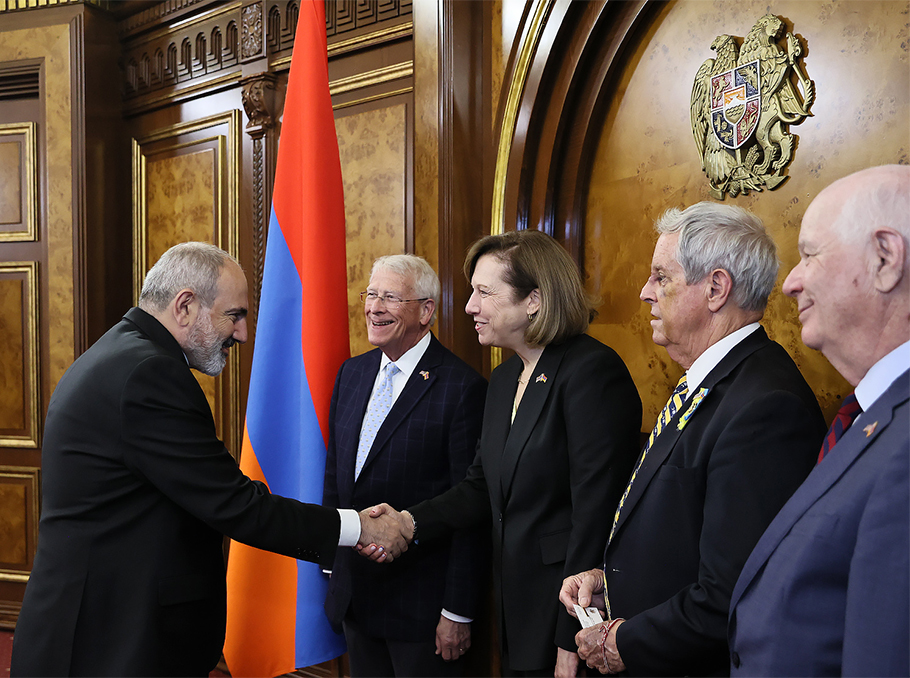Madam Speaker, as Co-Chairman of the U.S. Commission on Security and Cooperation in Europe (commonly referred to as the Helsinki Commission), I recently returned from a meeting in Dublin, Ireland, with almost 100 parliamentarians from 30 countries where we had the opportunity to discuss responses to the global economic crisis. The meeting was organized by the Organization for Security and Cooperation in Europe Parliamentary Assembly (OSCE PA) and the Parliament of Ireland. All countries are grappling with difficult national problems related to the economic crisis. And indeed, we are in a crisis, and for America, this is the worst economy we’ve experienced since the Great Depression in the 1920s. People all across America, and in my home state of Florida, are losing their homes, their jobs, and are unable to provide for their families.
In addition to discussions on financial regulation, trade protectionism, good governance, and the social consequences of the crisis, I was pleased that we also discussed revenue transparency in the extractive industries as an integral part of creating more transparency in the global financial system overall. As legislators, we have a duty to find ways to relieve the suffering caused by the financial crisis through vital investments in health care, education, infrastructure, and job creation so that we can emerge from this crisis stronger and better than before. But part of the solution is looking at how we even got into this crisis. Transparency –or the lack of it–in the financial world is certainly one of the culprits. And as revenue dwindles, making the most of what we have becomes even more important.
The way I see it, improvements in revenue transparency, particularly when we focus on the extractive industries, are important in at least three key ways: The first is to help alleviate poverty. 3.5 billion people live in countries that are rich in oil, gas and minerals. With good governance, the exploitation of these resources can generate large revenues to foster growth and reduce poverty. Resource revenue transparency is necessary in order for citizens–the true owners of their country’s natural wealth–to be able to demand greater accountability from their governments for spending that serves the public interest.
The second is to promote stable investment climates. Mandatory disclosure can help diminish the political instability caused by opaque governance. Since extractive industries are capital-intensive and dependent on long-term stability to generate returns, transparency of payments made to a government can help mitigate political and reputational risks and also allow shareholders to make better-informed assessments of opportunity costs.
The third area is to enhance energy security. Opening the extractive industries sector to greater public scrutiny is key to increasing civil society participation in government. This form of transparency, in conjunction with an increasingly active civil society, can help create more stable, democratic governments, as well as stable business environments.
It’s a well-known, and well-bemoaned, fact that the United States is becoming more and more reliant on imported energy to fuel our economy. We are the world’s largest consumer of oil–we account for an astounding 25 percent of global daily oil demand–despite having less than 3 percent of the world’s proven reserves. And we source that oil from some unstable and unfriendly places in the world such as Nigeria and Venezuela.
In the context of today’s discussion some of you may wonder why the United States should care what is happening in Turkmenistan or Kazakhstan, when we don’t rely on these countries for our energy supplies. Russia is only number eight on our list of top ten oil suppliers and Kazakhstan, Turkmenistan, Uzbekistan and Azerbaijan don’t even make it into the top twenty.
The answer is that unlike natural gas, oil is a commodity, so regardless of where we source our oil, what happens in other oil-rich countries impacts the stability of our price and our supply as well. Truly, no one country can achieve energy security without global energy security.
I think we can all agree that relying on a country as a source of energy can distort a bilateral relationship. I’m sure you can imagine how drastically different our interactions with some countries would be if we did not rely so heavily on these countries’ resources. I think it goes without saying that we would have more leverage to promote democracy and civil society. Clearly oil constrains, if not drives, our foreign policy.
So while it is imperative that we work to limit our dependence on foreign oil and change the dynamic of supply and demand, it is just as important to create more stable and reliable sources of energy. One of the key ways the international community has sought to counteract the political and economic instability inherent in the resource curse is through programs that seek to instill transparency and accountability into the resource payment system.
As legislators, there is a lot that we can do to further the cause of transparency in the extractive industries.
As Co-Chairman of the U.S. Helsinki Commission, I have held hearings and briefings on energy security and transparency that call attention to problems and advocate for solutions. I have also written letters–co-signed by a number of my congressional colleagues–on this topic to the Executive Branch to advocate for specific policy stances related to U.S. participation in EITI. Drafting and passing legislation is also important, and in 2007 we were successful in passing legislation that spells out the importance of extractive industries transparency in U.S. foreign policy and directs the U.S. State Department to actively promote EITI.
I also co-sponsored legislation that would require oil, gas, and mining companies registered with the U.S. Securities and Exchange Commission (SEC) to publicly disclose the payments they make to foreign governments for the extraction of natural resources. The information would be included in financial statements already required by the SEC and would apply to both American and foreign companies listed with the SEC, which includes 90 percent of the world’s largest oil, gas and mining companies. I’m hopeful that we will see that legislation pass in this Congress.
Another tool is direct communication with the Executive Branch. One thing we have already started discussions with the Obama Administration on is how we can play a responsible role–not dominant–in EITI. I strongly believe that the best thing we can do to help boost EITI is to follow the lead of other OSCE member states such as Azerbaijan, Kazakhstan, Kyrgyzstan and Norway and become a Candidate Country with the goal of becoming fully compliant with EITI standards. Right now we think that can be accomplished without any legislative action by the Congress, but if we do need to make some legal changes, then that is something we will work on.
If there is one word that has gotten us in this problem, it is greed. This needs to be said so that we as legislators can do something about it. As we are talking about hedge funds, and all these other mechanisms for moving money, we can’t ignore the impact of the shadow economy. It is something that we need to address because it fuels crime and instability.
Madam Speaker, in the Dublin meeting there were many opinions about the roots of the crisis and potential solutions. However, one clear message I took away from that meeting is that we must work together to find a global solution to a global crisis.










